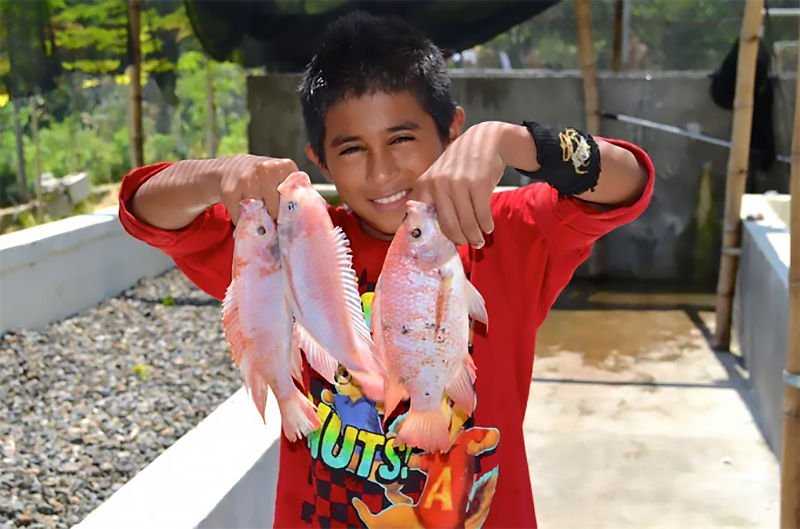JACKSONVILLE, FL – The mission of Go To Nations (GTN) is “To serve as a “mission sending organization” which helps the body of Christ to conduct mission ministry by providing the practical and technical assistance necessary to be effective in the global harvest.” Equipping missionaries, local churches, and international ministries to reach the world with the Good News that Jesus Christ is the Savior, GTN has sent over 700 workers into 88 different countries over the past 30 years. GTN helps Christians conduct mission ministry by providing technical and practical assistance to more effectively reach the unreached until every tongue and nation has heard. In July 2014, Go To Nations introduced its Global Development (GLODEV) initiative which focuses on the transformation of impoverished communities through relief and development projects.
GLODEV operates from a foundational belief that the global poor are capable of helping themselves. “They just need some principles to get them going.”
The past four-and-a-half-years have proven that there is a lasting change in entire communities when development practitioners work alongside missionaries in the field. The economic, physical, emotional, and social change does not come about by what GLODEV does, but by the indigenous people applying the principles they have been taught. Spiritual change comes through sharing the Good News of Jesus.
GLODEV introduces the science and technology of aquaponics and permaculture to promote sustainable agriculture among the impoverished.
Aquaponics
Aquaponics has grown out of the sciences of hydroponics and aquaculture, capitalizing on their best features whilst eliminating their individual disadvantages. The Aquaponic Source lists the benefits of the system growing plants and fish together in the same “garden.”
- Waist-high aquaponic gardening eliminates weeds, back strain, and small animal access to the garden.
- Aquaponics relies on the continuous recycling of nutrient-rich water. There is no toxic run-off.
- Aquaponics uses only 1/10th of the water of soil-based gardening.
- No harmful petrochemicals, pesticides, or herbicides are used in the all-natural ecosystem.
- Gardening chores are cut down dramatically or eliminated. The aquaponics grower is able to focus on the enjoyable tasks of feeding the fish and tending to and harvesting the plants.
- Aquaponic systems can be put anywhere.
- Aquaponic systems are scalable, from backyard gardens to full-scale
- Both plants and fish can be harvested from an aquaponic garden.
Permaculture
Permaculture is “The conscious design and maintenance of agriculturally productive systems which have the diversity, stability, and resilience of natural ecosystems. It is the harmonious integration of the landscape with people providing their food, energy, shelter, and other material and non-material needs in a sustainable way,” according to Modern Farmer.
The idea behind permaculture is turning waste into a usable resource. Permaculture is inherent in aquaponics as fish waste becomes food for the plants and the plants filter the water for the fish. Not only is there a sustainable-cycle, integrated, self-sufficient system but in permaculture, each component should fulfill more than one function.
One example of this concept is building a fence to contain animals by using trellises to grow plants and to act as a windbreak.
Permaculture is practiced by working with nature rather than against it, letting nature do the work of farming and gardening. This includes conservation of water through installation of swales, terraces, or shallow ditches that capture rain and surface water so that it nourishes plants in the ground (if not using aquaponics).
The GLODEV project was developed by Go To Nations to strengthen missions programs that minister to the poorest of the poor around the world, by expanding the value proposition of partner agencies, improving their efficiencies, strengthening their programs, and increasing their capabilities.
The efforts of Go To Nations are empowered by knowing that,
Of the 300,000 Cross-cultural workers in the harvest today, roughly 1 in 10 are working among the unreached. Each passing day, hundreds are sold into slavery, thousands die of AIDS, tens of thousands die of hunger and preventable diseases. Men, women, and children are dying without meeting their Savior, Jesus Christ
Together, we have the answers they need to transform their lives and their communities.
To read more news on Poverty Alleviation on Missions Box, go here.
Sources:
- Go to Nations, Official Website
- Global Development (GLODEV), Official Website
- The Aquaponic Source, What is Aquaponics?
- Modern Farmer, Five talking points to explain sustainable agriculture’s underground cousin
- Building a Difference, Global Development (GLODEV) and Sustainable Development
Image Source:
- GoToNations.org, Global Development (GLODEV) Video
